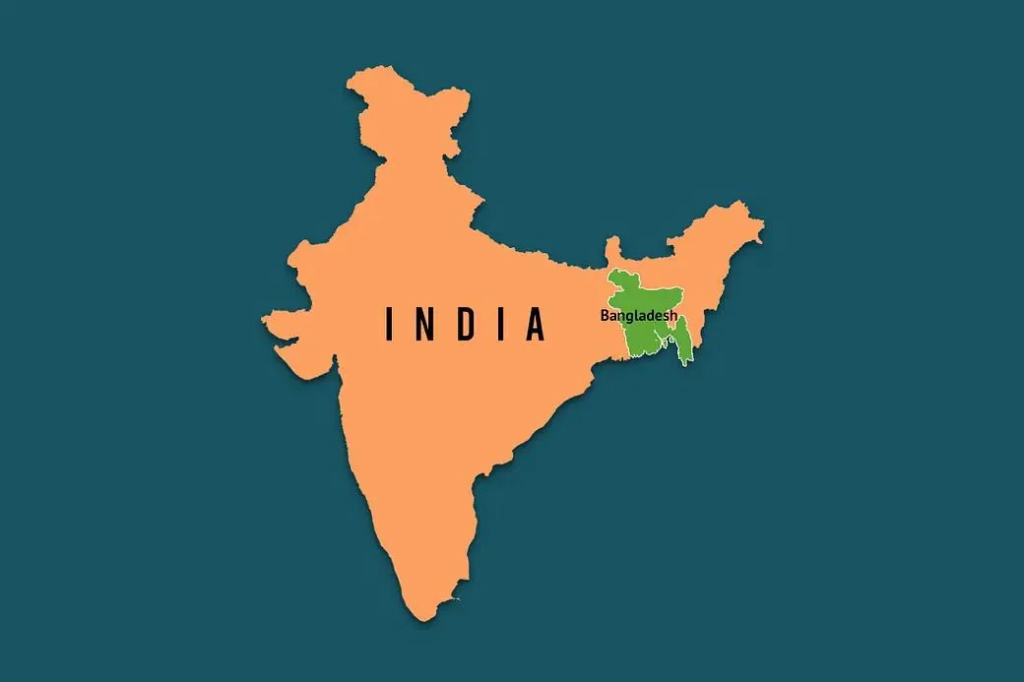The India-Bangladesh diplomatic tensions have surged as political unrest in Bangladesh continues to evolve. The recent conflict, centered around the former Prime Minister Khaleda Zia and her party, the Bangladesh Nationalist Party (BNP), has led to significant strain in the diplomatic relations between the two neighboring countries. As accusations of interference and sovereignty concerns dominate the discourse, understanding the timeline of these developments is crucial to grasp the broader impact on regional stability and bilateral cooperation.

A Shifting Political Landscape
The story begins in early 2024, when Bangladesh’s political climate took a sharp turn. Khaleda Zia, the former Prime Minister and leader of the Bangladesh Nationalist Party (BNP), faced mounting legal and political challenges. Amid these crises, her party accused India of interfering in Bangladesh’s internal politics by allegedly offering asylum to Zia and other displaced leaders.
Timeline of Key Events
- January 2024: The political landscape in Bangladesh began to shift dramatically. Khaleda Zia, facing serious legal charges, was ousted from her position, leading to a significant realignment in the country’s political dynamics. The BNP, struggling to maintain its influence, began vocalizing concerns over foreign interference.
- February 2024: Reports emerged indicating that India was engaged in secretive negotiations with various Bangladeshi political groups, including the BNP. Indian officials, including Foreign Minister S. Jaishankar, were reportedly involved in discussions aimed at resolving the political crisis. These reports fueled speculation about India’s role and intentions.
- March 2024: Tensions between India and Bangladesh escalated. The Bangladeshi government, led by Prime Minister Sheikh Hasina, publicly accused India of meddling in its internal affairs. This accusation was partly based on India’s perceived support for Khaleda Zia and her party’s agenda.
- April 2024: The BNP intensified its rhetoric against India. BNP leaders, including Tarique Rahman, made public statements criticizing India’s actions and calling for a reevaluation of diplomatic relations. The party argued that India’s actions were undermining Bangladesh’s sovereignty.
- June 2024: Diplomatic efforts were made to de-escalate the situation. Indian diplomats, including High Commissioner Pranay Verma, and Bangladeshi officials held meetings to address the concerns and clarify misunderstandings. However, the diplomatic relations remained strained.
- July 2024: The situation reached a critical point when the BNP organized mass protests against India’s alleged interference. The protests, held in major cities like Dhaka and Chittagong, were marked by demonstrations and public speeches denouncing India’s involvement.
- August 2024: The BNP’s public criticism of India peaked. Khaleda Zia herself made statements from her residence in London, where she had been reportedly residing in exile. Her comments were aimed at rallying international support and criticizing India’s foreign policy.
Expert Opinions and Analysis
To understand the implications of these events, it is crucial to consider the perspectives of experts in international relations. Dr. Mohammad Shahidul Islam, a professor of International Relations at Dhaka University, notes, “India’s involvement in Bangladesh’s internal politics, whether real or perceived, has significant repercussions. It challenges the delicate balance of bilateral relations and can influence regional stability.”
Similarly, Indian foreign policy analyst C. Raja Mohan comments, “India’s engagement in Bangladesh’s political landscape reflects its strategic interests in maintaining stability in the region. However, the perception of interference can strain diplomatic ties and complicate international relations.”
Navigating Diplomatic Waters
As the situation evolves, both India and Bangladesh face the challenge of navigating this diplomatic storm. India must balance its historical support for democratic processes with the need to respect Bangladesh’s sovereignty. At the same time, Bangladesh must address internal political dynamics without exacerbating external tensions.
The Road Ahead: A Call for Constructive Dialogue
The diplomatic saga between India and Bangladesh underscores the need for constructive dialogue and mutual respect. Both nations benefit from a robust bilateral relationship characterized by cooperation in trade, security, and cultural exchange. Moving forward, it is essential for both governments to engage in open communication and work towards resolving misunderstandings.
Conclusion for India-Bangladesh diplomatic tensions
The ongoing diplomatic tensions between India and Bangladesh highlight the complexities of international relations in a politically charged environment. As the situation unfolds, it is crucial for both countries to focus on dialogue, respect for sovereignty, and the preservation of mutual interests. Through careful diplomacy and sustained engagement, India and Bangladesh can navigate these challenges and continue to build a strong and cooperative relationship for the future.
For Regular News and Updates Follow – Sentinel eGazette
Sources
FAQs
- What sparked the recent diplomatic tensions between India and Bangladesh?
- The recent tensions arose from allegations by the Bangladesh Nationalist Party (BNP) that India was interfering in Bangladesh’s internal politics by allegedly offering asylum to Khaleda Zia and other ousted leaders.
- How has the BNP reacted to India’s involvement in Bangladesh’s politics?
- The BNP has strongly criticized India, accusing it of undermining Bangladesh’s sovereignty and stability. The party’s leaders have called for a reevaluation of diplomatic relations and organized protests against India’s actions.
- What role did Khaleda Zia play in the political crisis?
- Khaleda Zia, the former Prime Minister of Bangladesh and leader of the BNP, was a central figure in the crisis. Her legal troubles and subsequent exile became a focal point for accusations against India of interfering in Bangladeshi politics.
- How have Indian and Bangladeshi officials attempted to resolve the tensions?
- Both Indian and Bangladeshi officials have engaged in diplomatic dialogues to address the concerns and clarify misunderstandings. Meetings between diplomats from both countries aimed to de-escalate the situation, though tensions remain.
- What are the implications of this diplomatic strain for regional stability?
- The diplomatic tensions between India and Bangladesh have implications for regional stability. Both nations benefit from a strong bilateral relationship, and ongoing strains could impact cooperation in trade, security, and cultural exchange.